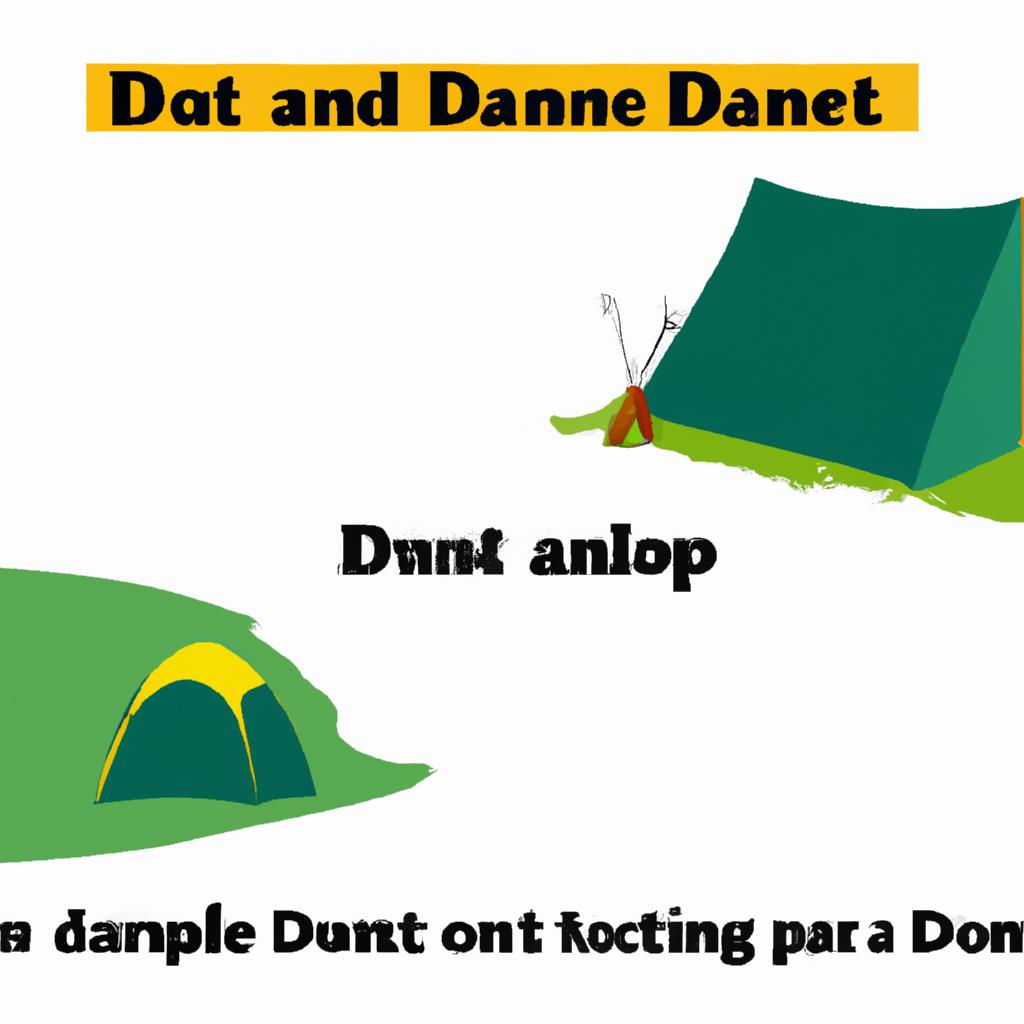Camping can be a fun and rewarding experience, allowing us to connect with nature and escape the hustle and bustle of everyday life. However, maintaining a camping site is essential to ensure a safe, clean, and enjoyable environment for all visitors. A well-maintained camping site not only enhances the overall camping experience but also helps to preserve the natural beauty of the surroundings.
Here are some dos and don'ts of camping site maintenance that every camper should keep in mind:
The Dos:
1. Clean up after yourself: One of the most important aspects of camping site maintenance is to clean up after yourself. This includes properly disposing of trash, emptying wastewater tanks, and cleaning up any spills or messes. Leaving a clean campsite not only helps to maintain a pleasant environment for other campers but also helps to protect the local wildlife and ecosystem.
2. Follow campsite rules and regulations: Most camping sites have specific rules and regulations in place to ensure the safety and well-being of all visitors. It is important to familiarize yourself with these rules and follow them accordingly. This may include guidelines on campfires, noise levels, and waste disposal.
3. Keep noise levels to a minimum: While camping is a social activity, it is important to be considerate of other campers and keep noise levels to a minimum, especially during quiet hours. Excessive noise can disrupt the peace and tranquility of the camping site and disturb local wildlife.
4. Practice Leave No Trace principles: Leave No Trace is a set of principles that promotes responsible outdoor recreation. This includes minimizing your impact on the environment, respecting wildlife, and leaving natural resources untouched. By following these principles, you can help preserve the natural beauty of the camping site for future generations.
5. Maintain campfires responsibly: If campfires are allowed at the camping site, it is important to maintain them responsibly. This includes using designated fire rings or pits, keeping fires small, and fully extinguishing them before going to bed or leaving the site. Improperly managed campfires can pose a fire hazard and damage the surrounding vegetation.
The Don'ts:
1. Don't litter: Leaving trash or litter at the camping site not only creates an unsightly mess but can also harm wildlife and pollute the environment. Always pack out what you pack in and dispose of trash properly in designated receptacles.
2. Don't damage vegetation: Respect the natural surroundings and refrain from damaging or disturbing vegetation. Avoid cutting down trees or branches, trampling on plants, or building structures that can harm the local ecosystem.
3. Don't feed wildlife: Feeding wildlife may seem like a fun and harmless activity, but it can have negative consequences for both the animals and the camping site. Feeding wildlife can disrupt their natural behavior, attract dangerous predators, and cause conflicts between humans and animals.
4. Don't use harmful chemicals: Avoid using harmful chemicals such as pesticides, herbicides, or harsh cleaning products at the camping site. These chemicals can pollute the soil and water, harm wildlife, and pose a risk to human health.
5. Don't disturb other campers: Respect the privacy and space of other campers by keeping noise levels down, refraining from entering their campsites without permission, and following campground etiquette. Be mindful of quiet hours and avoid disruptive behavior that can ruin the camping experience for others.
In conclusion, proper camping site maintenance is essential to ensure a safe, clean, and enjoyable environment for all visitors. By following the dos and don'ts of camping site maintenance, you can help preserve the natural beauty of the surroundings and contribute to a positive camping experience for yourself and others.


leave a comment